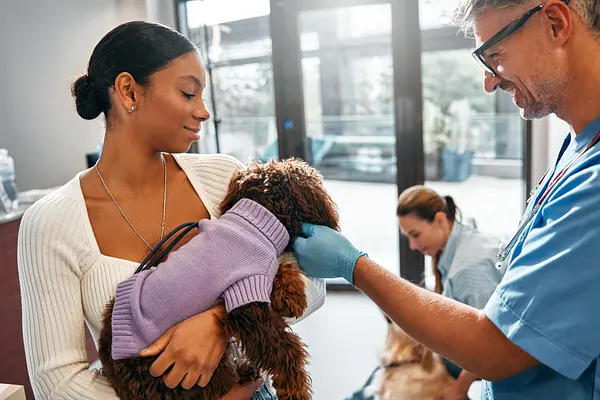迎接新幼犬进入您的家庭是一个充满爱意、欢声笑语和无数可爱时刻的激动时光。作为负责任的幼犬家长,您的首要任务之一应该是确保您的毛茸茸朋友保持健康,免受可预防疾病的侵害。这就是幼犬疫苗接种的重要性所在!在这篇博文中,我们将涵盖您需要了解的关于幼犬疫苗接种和保护它们安全的一切知识。
为什么幼犬疫苗接种很重要?
幼犬出生时免疫系统尚未成熟,这意味着它们更容易感染传染性疾病。疫苗接种通过让幼犬的免疫系统接触少量、安全的致病因子来帮助保护您的幼犬,使它们能够在不生病的情况下建立免疫力。这样,如果您的幼犬接触到真正的疾病,它们的身体就会做好准备来抵抗疾病。
核心疫苗与非核心疫苗
幼犬疫苗接种主要分为两类:核心疫苗和非核心疫苗。核心疫苗建议所有幼犬接种,无论它们的生活方式或所在地区如何。这些疫苗包括:
- 犬瘟热
- 细小病毒
- 腺病毒(肝炎)
- 狂犬病
非核心疫苗是可选的,可能会根据您幼犬的个体风险因素(如生活环境或旅行计划)来推荐接种。一些常见的非核心疫苗包括:
- 钩端螺旋体病
- 博德特氏菌(犬舍咳)
- 莱姆病
- 犬流感
您的兽医可以帮助您确定哪些非核心疫苗(如果有的话)适合您的幼犬。
何时应该为幼犬接种疫苗?
幼犬通常从6-8周龄开始接受一系列疫苗接种,并持续到大约16周龄。确切的接种时间和次数可能因您幼犬的品种、健康状况和兽医的建议而有所不同。典型的幼犬疫苗接种时间表可能如下所示:
- 6-8周:DHPP(犬瘟热、肝炎、副流感、细小病毒)
- 9-11周:DHPP加强针
- 12-14周:DHPP加强针和狂犬病疫苗
- 16-18周:DHPP加强针和可选的非核心疫苗
在初始系列接种后,您的幼犬需要定期接种加强针以维持免疫力。您的兽医可以帮助您根据幼犬的需求制定个性化的疫苗接种计划。
潜在副作用和注意事项
虽然幼犬疫苗接种通常是安全且耐受性良好的,但一些幼犬可能会出现轻微的副作用,如注射部位疼痛、嗜睡或食欲不振。这些副作用通常在一两天内消失。在极少数情况下,可能出现更严重的反应,如面部肿胀或呼吸困难。如果您在幼犬接种疫苗后注意到任何令人担忧的症状,请立即联系您的兽医。
一些宠物主人可能担心过度疫苗接种或某些疫苗成分的潜在风险。如果您对幼犬疫苗接种有任何疑问或担忧,请不要犹豫与您的兽医交谈。他们可以为您提供准确、最新的信息,并帮助您就幼犬的健康做出明智的决定。
掌握幼犬的健康状况
跟踪幼犬的疫苗接种时间表以及其他重要的健康和训练里程碑可能是一个挑战。这就是「Doggy Time」应用程序的用武之地!这款用户友好的应用程序允许您与家庭成员协作,在一个地方记录幼犬的活动、训练进度和医疗记录。借助智能提醒和日程安排功能,您永远不会错过疫苗接种预约或幼犬生活中的其他重要事件。试试「Doggy Time」,看看它如何帮助您保持井然有序,让您的幼犬快乐健康!
请记住,为幼犬接种疫苗是确保它们成长为健康、快乐成年犬的最重要步骤之一。通过与兽医密切合作并掌握幼犬的疫苗接种时间表,您将为毛茸茸的朋友提供最好的人生开端。






